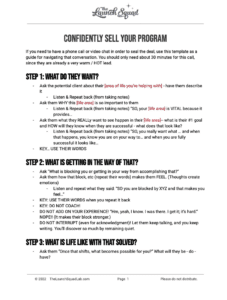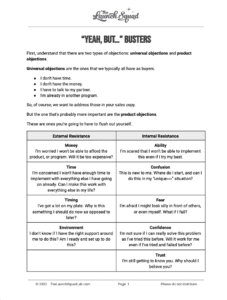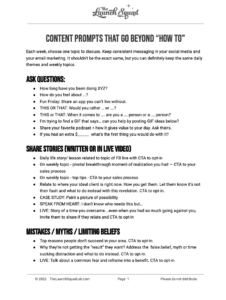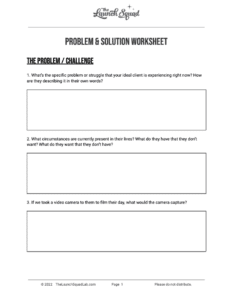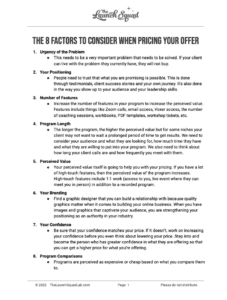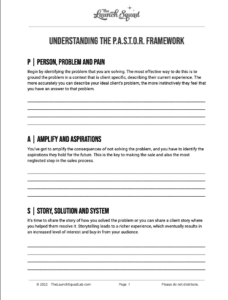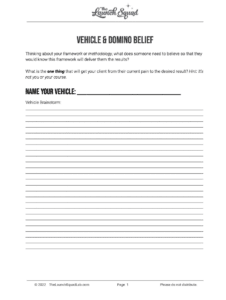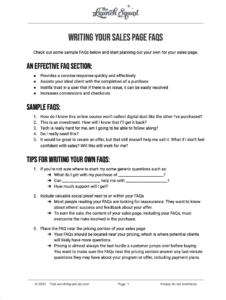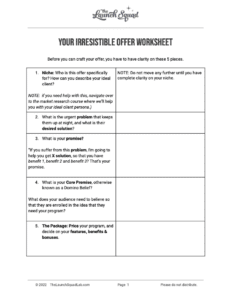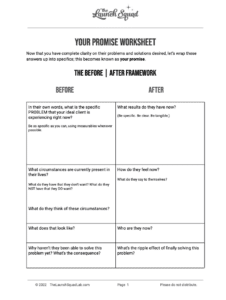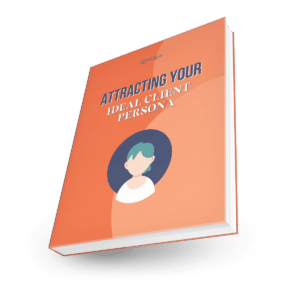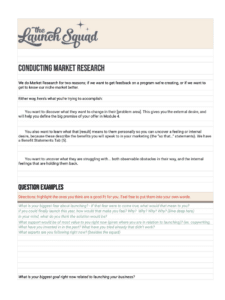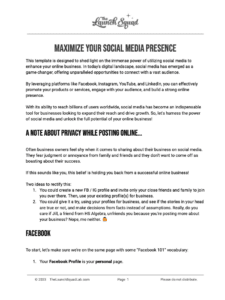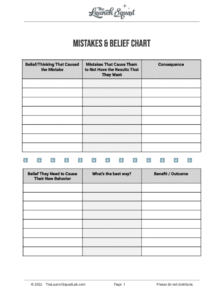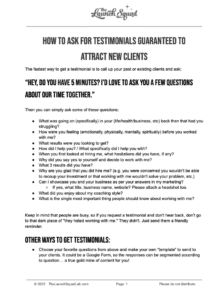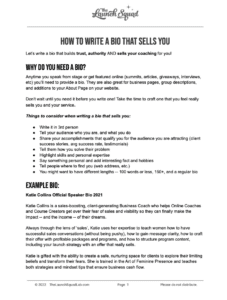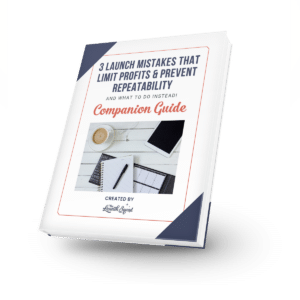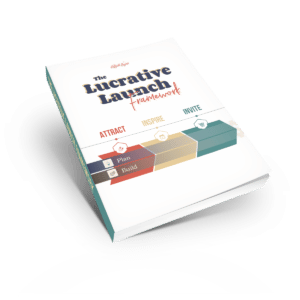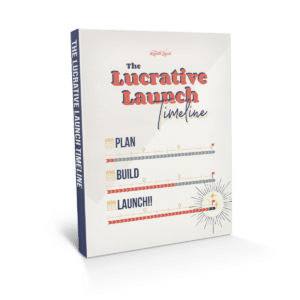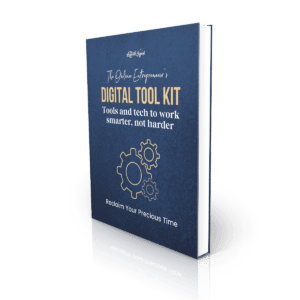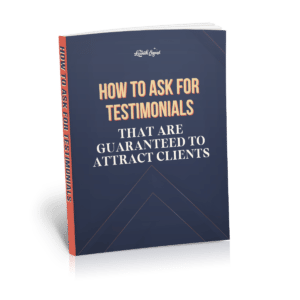Join us as we explore the uncomfortable conversation about what it means to support Women, Non-binary folks, and Gender Non-Conforming beings in our ever-changing global community.
Our guest today was born and raised in San Jose, CA and has lived in Los Angeles, Sacramento, and Tempe, Arizona over the years. Their pronouns are They/Them/Theirs. They are Mexican, Indigenous, and Scandinavian. They are a Spoken Word artist, Biz Builder, and passionate advocate for Equity, Justice, Healing, Self-Care, and Community Building.
Their Media company has been in this industry for 15+ years. They are a graduate of the Conservatory of Arts and Sciences and has two degrees in Music Technology.
They have recorded over 30 albums and EPs for local artists (including their own), performed on stages at festivals, open mics, and have been interviewed on local radio and television.
They bring their years of performance knowledge and educational background into all they do.
Please welcome Vida Miramontes-Loek to the Podcast Stage!
Learn more and connect with Vida:
[00:00:00] Jeffrey: Welcome to the light in your launch podcast today, we're leaning into the uncomfortable gender and non-binary conversation. Stay tuned.
[00:00:59] Jeffrey: Welcome back to the show. I'm Jeffrey Samorano and I'm back again with Katie Collins and today we're being exceptionally vulnerable as we do our best to lean into a conversation that is far beyond. Our current comfort level. So we are talking of course about how to support women non-binary and gender non-conforming beings.
Katie, please introduce our guest.
[00:01:27] Katie: They were born and raised in San Jose, California, and have lived in LA Sacramento and Tempe, Arizona over the years, their pronouns are they them theirs? They are Mexican, indigenous and scantily. They are a spoken word, artist, biz, builder, and passionate advocate for equity, justice, healing, self care, and community building.
Their media company has been in this industry for 15 plus years. They are a graduate from the conservatory of arts and sciences and has two degrees in music tech. They started off as a performer and spoken word artist and discovered their love for audio event production and supporting others to gray stages.
And after years of self-taught growth chose to pursue this passion as a degree and business they've recorded over 30 albums and EPS for local artists, including their own has performed on stage. Festivals open bikes, how shows and has been interviewed on local radio and television for their music. They bring their performance, knowledge, wisdom from being in this industry for so many years and educational background into all they do for their clients.
Welcome to the podcast stage Vida Miramontes-Loek.
[00:02:44] Vida: Hello! Hello!
Hello!
Thanks so much for having me
[00:02:49] Katie: Yeah. Vida. We're so glad to have you here. I know I reached out to bring you on the show maybe a year ago, maybe. Right. And yeah, you were, you were going to host an event and I was like, oh, I'll help you promote the event, come on the show. And, and then things change as they do. Um, and here we are a year later, but it's going to be even. Um, but I know my original intention was I wanted to really chat about how to be more inclusive. I feel like it's an important thing for the launch squad to learn. And I also think it's important thing for our listeners to learn. And I'm going to just state that this is probably one of the episodes that Jeffrey and I are most.
Uh, nervous about, because we don't want to offend or say something stupid or all of the things that you see cancel culture happening to people. But I'm glad that you kind of assured us ahead of the show. You know, that this is actually doing the work is being willing to say, I don't know much, but I want to know more.
Um, our audience to learn how to create that inclusive community, as well as, um, just understanding your journey and putting a stake in the ground for working for people that you only feel aligned with. So there's so much juiciness here. So I just wanted to say thank you and just acknowledge my show jitters.
[00:04:09] Vida: Yes. Thank you so much. And I definitely appreciate that y'all are both acknowledging them cause like, yeah, like we talked about that really is a big component of doing the work around inclusion, um, is leaning into the uncomfortability and naming it and being able to continue walking forward, such that we can continue to incrementally.
Move and shift the culture here on planet earth towards a one that's more unifying and has us, like I said before, has this in the same book, at least, even if we're not all on the same page.
[00:04:44] Katie: Right, right.
[00:04:46] Vida: Yup.
[00:04:46] Katie: I like the way you say that.
[00:04:48] Vida: Thank you. And I have three disclaimers. Could I just Drop them in real quick before we get started arts?
[00:04:52] Katie: to start
[00:04:53] Vida: Okay. So the first disclaimer I have is I do not know everything. Yes. I'm a part of these communities that we're going to be talking about. However, the queer and trans communities are constantly expanding and the beauty of the LGBTQ I. And two-spirit community is that there's, uh, there is a constant evolution.
There's constant inquiry for each individual. That is a part of the community, as well as there's constant discovery as a community, as well as individually as to what's going on within ourselves. And that's why you'll kind of see different words pop up in different conversations. Being had about different ways to address different layers of our, our, our being this, uh, the second disclaimer is what's true for me is not true for everyone.
Within this community. There's no monolithic. I'm sharing my perspective as a multiracial person of color. Who's predominantly raised within the Mexican culture. Who's queer and non-binary. And the third disclaimer is that while I am consciously choosing to engage in this conversation, not everyone within, uh, communities who experience marginalization are.
So if you hear this episode and get inspired, feel free to reach out to me. Um, Courage you to, uh, not reach out to your friends and family that are queer or trans, unless you first asked for their consent around having this sort of conversation. And that's because for a lot of us within these communities, we have, uh, experienced trauma around our beingness.
So asking someone to have a conversation regarding this, um, is often asking them to open up a wound, so to speak and I'm consciously open. in a very safe way for myself to be able to have this conversation so that we can lean in and hopefully inspire folks that tune into this episode, uh, to also lean in and begin the journey if they're not already on it. uh, to their perspective, like their specific inquiry as to how they could be more inclusive within their communities and containers.
And those are, those are my disclaimers. Thank
[00:06:52] Katie: All right. I love it. I love it. Set the stage and, and just right off the bat, I think people are already learning. Um, you know, because there was so much going on, but that cancel culture a couple of years ago, you know, it was like if you asked a question, people would kind of, you know, do do your research was everyone's favorite.
Favorite thing to say. And so I think it made people kind of back off and say, I'm afraid to ask, cause someone's going to yell at me for asking. And I love how you're saying, find the people that are willing to answer. It's not that you can't ask. Right. Or can't stay curious. So, you know, and I love the explanation of why, because I think that, um, people that haven't had these same experiences, right.
Um, don't understand. Trauma or trauma based on identity. And so they come at it like, well, I'm trying to be more inclusive and then I get yelled at. And so I don't know. Right. And it just, it creates like another division. So, um, yeah, so.
[00:07:59] Jeffrey: for myself coming from the perspective of somebody who has not lived through a lot of trauma. I'll I'll definitely share that this is difficult for me and I don't fully understand it. And I, but I, I want to be inclusive. Like, I, I know this is not like, uh, what did I hear somebody say, oh, you know, kids being, but I don't know kids being, uh, I don't know what the word they use, but it's not that I know.
It's not that. And I want to be inclusive. I want to know more about. Coming from a place of utter, complete ignorance in the world. And just be like, I, I know I'm going to fuck this up. And because I'm, I'm coming from a place where like, I don't understand it. I really don't. I don't. And maybe that's okay.
And maybe I'm part of the problem.
[00:08:57] Vida: I definitely think naming it for yourself as a really powerful place to be, because I know that there's probably folks are going to be tuning into this episode that are in that same position. And to be able to have someone that is vocally putting themselves out there and naming where they are exactly is a really, really, really powerful thing.
For a number of reasons. One in particular is definitely because I think that can help folks understand that they are not alone in feeling that because you know, it it's like there's multiple sides to this conversation, which Yeah.
Like I named, you know, you gotta be mindful and ask for consent or other conversation cause it could bring up wounds.
And then there's the other side where there could also be, um, you know, the, uh, wounding around getting it wrong, you know, or a wounding around like, not. Uh, not belonging for not understanding type of thing, you know, which is kind of what I hear. There might be a layer of which if you really look at it, like it's, it, there is similar energies within those, not the same exact.
Definition of the energy taking place, but it is this, like, how do I do the thing the right way, you know, like, so I definitely appreciate you sharing exactly where you're at and also that you are open to exploring this conversation in this way.
[00:10:16] Katie: Ah,
[00:10:17] Jeffrey: At least I'm trying to write
[00:10:18] Katie: Yeah, exactly. Yeah. Um, so I think that this is just going to be a thread in this conversation. I don't think it's be like the focal point of the conversation, but, um, I want to hear, you know, I mean, Viva, you have an incredible background, you know, I always think of you as so young. I know you're not, but just compared to me,
[00:10:43] Jeffrey: okay, grandma.
[00:10:44] Katie: I, you know, and I've just, I've known you for so long. It's been really fun for, I think, each other to watch each other grow and change and, and really remain friends through it all. It's been so great. Um, so, so we originally met because you were. A, um, you were employed as a DJ for a coaching company. And so we got to see each other on a monthly basis for a long time.
Um, and I think you did that for several, for several people. So like, let's start there cause I know there's so much more to your recording, um, and your artistry, and we want to get, definitely get into that, but let's just kind of start with, um, being in quote unquote, this industry, which you know, around here, it's like coaching, transformational coaching.
You know, course creation events, you know, uh sales-based events and that kind of thing. Um, so what, what was that like for you and when, when 2020, or, you know, when COVID-19 happened? Like what, what kind of transpired for you in that role of live events?
[00:11:45] Vida: Got you. Well, I feel like I should start by saying, cause I know there's going to be folks that are tuned in that don't know anything about me. I have a, the first time I experienced, uh, Transformational event. As I called him, I was 15 years old. Right. It was a very known company out in the world. I'm not going to name it because that's a whole other thing for folks.
Um, but it's a very well-known company out in the world. I was 15. My dad actually really wanted me to do it. And I was like, Nope, don't want to do it. What is this stuff? And then I found out they had a location in New York. So, uh, It was kind of a barter. I, you know, negotiated being able to go to New York to do this course.
Right. So 15. Dove into this space. And I was really like, I was hooked on it. Like I had, you know, experienced some things in life that were pretty difficult in my childhood. And to have that, that sort of awareness that this, uh, container offered was really special. Uh, the only other container that I had that felt similar to that was my poetry and my music, where I was able to really create and be at the helm of processing, Um,
and being at the home of.
Releasing the things and kind of shifting my perspective, you know, that's, that's what my poetry is for me. So being able to be in the space was really beautiful. Um, and I remained within the, the transformational space as a part of that community, as well as other communities. Um, from that point on, um, and then, you know, my story interweaves with my music and how I began my business and stuff like that.
Uh, but getting to kind of what you just spoke of in 2020, um, I had actually just, um, 2017, I think was a year that I really. I woke up a couple of years before that internally, so to speak. Right. And 2017 was a year that I really was like, Nope, can't do this life anymore. Cause I'm going to be 30. At that point, I was going to be 30.
Like, I don't remember a few years from then I'm a baby. And like, yes, I'm a baby. And so I was like, uh, you know, I was in this relationship, there was a. That I will not get into all this episode about that, but I was just like, I can't keep doing this. Cause I had been doing the things that I had been doing since I was 19.
Right. So I was like, I can't keep doing this. Like, something's got to give. Uh, started, you know, looking all around me and started just kind of incrementally making a ship. So it was the relationship, it was school things, it was then business stuff. Right. And by the time we got, I got to shifting around my business things.
I think the following. Was when 2020 hit. And when the re-emergence of the civil rights movement came to the forefront for a lot of folks, a lot of folks know that as like the black lives matter movement that came very, very loudly out in 2020 for a lot of folks. Um, so at that point in time, it was kind of like this, I don't know, vortex of a lot of energies going on.
Right. So I had just stepped away from the company that you spoke of that we met at, um, Just started to reshift my life to where I wanted to be and kind of all these, these various pieces. Um, and I got to 2020 and I was like, okay, well, how do I not do any of the things I had been doing? Like at all? You know?
And I really looked at like, how do I not? And the, one of the things that came up was actually looking at the value system that I was bringing forward wherever I was going. Um, and at that point I had. Uh, also started working with someone in the, the diversity equity inclusion anti-racism business space.
Um, her name is Trudy LeBron. I had just joined her container. So I had. It was a really interesting and intense moment of time, but we had this space throughout 2020 to really explore these things in a really deeper way than we would've liked in 2019, because there was so much at the forefront. And so many people were getting named as folks that were doing harm.
Repairing and all that various things. Right. So within my business personally, I really sat with like the questions of, Yeah, Well, how do I not do the things I had been doing? Um, how do I work with the folks that I know I'm going to. Have the space to lean into difficult conversations and know that the repair is actually going to happen.
You know? Cause I noticed there's so many folks that I had worked with in this space. Um, no names that say that they're doing the work and uh, say all the right things in moments of tension, uh, only to continue the behavior, which I think is definitely like a human pattern type of thing. You know? Like I understand that it's like part of humanity. And also we as business owners, like I at least have given myself the permission to know that I don't have to put up with that, you know, For sure. Centered around my identities and being queer and being multiracial and being non binary, but also just in general, like we don't have to do things within our business that don't feel good.
We don't have to accept money just because we need the money. If it's coming with like a backhanded compliment every time we're with that client, you know, or if like the energy just doesn't feel right or not feeling seen, or we don't feel really included, um, You know, team dynamics or different things such as that, you know, we don't have to put ourselves in those situations.
Um, so 2017 is when I initially was like, all right, how do we shift all this in 2020 was definitely when I gave myself the permission to be way more vocal about the things that were going on, uh, within. That had already transpired within different dynamics. I had been a part of. Um, and then also really, yes, the words you said were like putting a stake in the ground, you know, to be able to only, uh, you know, call in and work in the spaces that I really do feel aligned in, but also that I feel seen in, you know, cause there's something to at least for a person who carries the identities that I do, there's something to really feeling seen in a different sort of.
You know, um, in held in a different sort of way, especially around my business. Not that I need to go around and like, uh, where like a bubble around me to not run into things and like get hurt, cause getting hurt and experiencing harm is a part of life. Right. Um, how ever if I'm consciously putting myself in situations where I know that I'm going to get hurt.
That's a me issue. know, like if I know someone is harmful to a certain community, I'm a part of, and I go and I sit next to them. Um, I'm opening myself up to re wounding myself, or also, uh, you know, if I do choose to engage in a conversation around equity or, or sorry, inclusion, or like having them lean in that, like that might not be.
Uh, way that I might envision, because, you know, just like I said, make sure you ask for the consent of the people that are a part of these communities that are experiencing marginalization. Um, we also have to ask for consent for the folks that are wanting to lean in to the conversations, if they're actually in the space to have that sort of conversation, you know, because there can be, um, Like we kind of talked about that can be their own woundings there could be their own unknowing and there definitely has to be a sense of trust as well as, uh, you know, the feeling of safety to kind of dive into that.
So that's kind of,
[00:19:23] Katie: the readiness, right?
[00:19:25] Vida: Yup.
[00:19:26] Katie: Yup. Yup. And you know, I, um, Witnessed you work at an event here. I mean, I wasn't at the event, but I got to witness your energy. After you worked at an event here in Colorado and you came back to stay with me and you were just like so lit up and bright working with those folks.
And I was like, interesting. I don't think I've seen this. Vita before. Right? Like, so I really saw that for the first time I got to understand. Yeah, just how you might not have felt safe or welcomed in a community that I was a part of that thought it was just the bomb diggity. Right? Like I, I thought we were inclusive to everyone, you know, I just was at a time in my life where I was, I mean, I check every norm box.
There is really, and I just don't understand. And I just didn't, I just didn't understand. Right. Totally blind. So it was just interesting to watch that. Um, and, and to understand, oh wow. There's stuff, you know, and I think by then I had already learned some other stuff as well, but we don't know what we don't know.
Um, and it can be very confronting if someone comes up and says, you know, to. Uh, the leader, you know, cause like let's just like step back and go. So community leader, I mean, it takes a lot of energy to stand on that stage and hold the space for, let's say a hundred people in the room. It takes a lot of money to bring a hundred people in the room.
It and not to mention paying for the room you're in the AAV, all the things. And so there's a certain kind of stature that you are as the leader of the room. And like you can hold the space. And, um, and so if somebody were to approach you and say, Hey, you know, I love your event. And I really wish it were a little bit more inclusive or I wish that there were more than white faces in the room, or I wish that there was a big, a better balance, um, of, of, of folks in the room.
Uh, yeah, they gotta be ready to hear that. Right or, um, you know, and I think a lot of people, I don't know if this is true, a lot of people, some people may say, you know, Hey, I put the promotion out there and people come if they're attracted to me. So I want to dive into that a little bit, because I know that I've said those words.
And so do you have any advice for, um, things that I could say or do that would attract a more diverse group of people? You know, not just to me, but right. To, to us that are noticing, gee, my room is all white, mostly women. Right. And I'm speaking about me. Um, and, uh, and we're all coaches in some way. Right?
How can I invite more? Um,
[00:22:15] Vida: yeah. deeper inclusion. Yeah, So I think, you know, for someone who's experienced and what you've just, uh, expressed, definitely the first part is where you're kind of at, it's like acknowledging it. Right. So we'll start there for folks that are listening. Right. We'll just start from the basics, like acknowledging it as a want for sure. Um, and then the next step would definitely be because. It's kind of tricky to give a step-by-step process because each individual has different things that they may. Want to consider looking at as far as what might be calling people in or what might not be calling people in as well as, you know, there's, uh, the various layers.
Yes. There's like the surface layer of like the marketing materials and like how to word things differently and use language and photos and things like that, which I think is what we saw a lot of in 2020. Um, fo folks were quick to like ship their pictures to folks that were not all white, that were not all women in things such as this, um, at least not all assigned female at birth women, you know?
Um, and then the, that a lot of it is like a deeper introspective. it's like, well, how do I have these sorts of people in my life already? Do I have a friend that's queer? Do I have a friend that is multiracial? Do I have a friend that's non binary? Like, am I attracting those folks already in my life?
If I'm not, then typically there's something in that space to look at first. Um, and oftentimes I think the, the, the initial. Knee jerk reaction is to then say, okay, well, I'm going to go hang out in these places and
[00:24:05] Katie: go to the Alliance center.
[00:24:07] Vida: Yeah. Well, the Alliance center is a really good place to start because the Alliance center.
has a lot of like, uh, materials and things like that.
And that's a space that is consenting to be a place within communities that folks can lean into to, to get education. Right. Um,
[00:24:22] Jeffrey: I don't even know what the Alliance center is.
[00:24:24] Vida: The like, uh, queer Alliance, community centers, like the LGBTQ community centers. That's what I took that as. Is that what you were saying?
[00:24:33] Katie: Yeah.
[00:24:33] Jeffrey: centers.
[00:24:34] Katie: Yeah.
[00:24:35] Vida: There's yup. There's LGBTQ community centers.
because, so as a part of like being someone within this community, like, uh, a lot of us have had to learn that we need to rely on others within our community to build these spaces for ourselves that, um, are inclusive and feel safe the majority of the time, because there's no place it's perfectly safe.
Right. Um, so Yeah. there's community centers for. Youth for older queers for kind of all over the space space in places it's basically like a community center, but specifically for the queer community, LGBTQ I a two-spirit communities.
[00:25:16] Katie: What's the IAA stand for.
[00:25:19] Vida: Uh, it, it depends on what you, who you're asking. Some of the letters carry more than one, uh, from, from my, from my
[00:25:29] Katie: I don't know why I'm so confused.
[00:25:31] Jeffrey: Oh, yeah. Right. This is not confusing at all.
[00:25:33] Vida: there's uh, well, that's why I, you know, wanted to say at one of my disclaimers, is that like the beauty of this community is it that it's constantly evolving and there's a constant inquiry and there's a constant discovery, you know, like even people within the community don't know all the things like that's the beauty of it, you know what I mean?
Like, I don't know all the things and I've been queer for as long as I've been here, you know? So the, I, I'm pretty sure that means intersex. Um, and then you asked what the, a means the a, uh, is like, I've heard two different ways. I've heard that it's like folks that are asexual, but then I've also heard that it's folks that are aged gendered.
Um, so the, the letters all signify, you know, different, uh, labels, I guess, is the word we would use. The folks are. Resonating with, uh, but it also allows for us to look at and name folks that are anything other than the majority or not, the majority I would say is more so like the norm. Right? So hetero all these signify folks.
Are not within the hetero normativity of the either, uh, like gender's fear or even the sexuality sphere in how someone could show up within that space in community and personal identifications as well.
[00:26:59] Jeffrey: Is. To make it normal. Like I'm I imagine like there was never I'm Hatteras I'm heterosexual and proud. Right? There's there was never this. Oh my God. I'm heterosexual and proud, but there's but there has been I'm gay. I'm proud. I'm this I'm proud. I'm the, like, there's this, there's this coming out, uh, movement of these, uh, of these new, I guess.
And the letters that are in this space now, right? So is the goal to make those letters as invisible as no longer need the letters are we to, to, to get rid of it, to get rid of the, um, uh, the, the need to say, well, I'm this label or I'm this now. And you have to like, just to, I guess I'm what I'm asking is like, is the goal.
To ultimately kind of come back around where the letters are not required, the, the right. Yeah. Yeah. Well, yeah, I guess that's a way of saying it,
[00:28:07] Vida: I would have a good joke. I want to say, are you asking me about the gay agenda right. now that you have to like be inducted into like a special ceremony and like, you have to be read the rights and like the protocols and you have to like,
[00:28:23] Jeffrey: Get the.
[00:28:23] Vida: You get the handshake down before we go down that route. But, uh, I hear what you're saying though. Uh, in terms of unity. So most people there is like an unders, uh, there is this. Question. Yeah.
Is, is unity the point of unity such that we don't need to have these things anymore. And, uh, I think the answer to that would depend on who you're talking to. For me, my interpretation of unity is such that everyone is, um, with equitable access to resources, as well as, you know, inclusive of. Whether that's money, uh, access to community support, access to love, access, to feeling safe within community spaces or as safe as possible. Um, so for me to answer your question even more deeply, I don't think that it means the dissolving of the need to name ourselves within these certain, uh, ways that we do.
I think it's more so. The space to name ourselves within these certain ways and know that we're not going to be harmed because for me, living in California, I experienced queerness way differently than someone that is raised, born and raised in Ohio.
[00:29:47] Jeffrey: Totally.
[00:29:48] Vida: Uh, for me experiencing queerness here in California in the bay area is way different than someone living in India or someone living in Mexico, uh, you know, different countries in different places on the planet.
Still. Uh, enact very, I'm not going to say what it is, but enact very brutal circumstances when someone names herself a certain way, you know, and you can Google those sorts of things and you'll see them all over. Um, so for the community, at least from my interpretation, cause again, this is not a monolithic voice that I have.
[00:30:28] Jeffrey: You mean, you don't speak for all, all, all of them.
[00:30:32] Vida: I do not, you know, I haven't been elected president of the gay agenda yet, so,
[00:30:38] Jeffrey: The sole
[00:30:39] Katie: we can make you some pins, get
[00:30:41] Vida: yeah. We could, you guys want to vote for my campaign, feel free, but, uh, so. The naming of ourselves and the way that we do, uh, at least from my interpretation and my understanding is that because there. is this innate shaming that goes on around being queer, like literally from like childhood, you know, to be able to get to the point where you're like, oh, I am. Not the norm. I am this other things going on inside of me. My body feels this towards, you know, this person or my, you know, heart feels this towards that person. To be able to get to the point where you step beyond the internalized shame put another way is like internalized homophobia, Um, is a really powerful place to be.
So to be able to step to the other side of it and say, Hey, I'm proud to be queer or I'm proud to be. Non-binary proud to be, you know, if it's a gender, um, exploration that someone's on that moment, uh, is really fucking scary. Am I allowed to cuss on here? I just did. It's
[00:31:47] Katie: did earlier. So I was like, all right, explicit, this one.
[00:31:50] Vida: Ah,
[00:31:50] Jeffrey: put the, we'll put the little E on this one.
[00:31:53] Vida: Uh, so it's like, it's a scary thing.
Cause you know, like I said, me being raised here in California, the bay area, I've experienced it differently than other folks in other places. Like I have definitely experienced various degrees of harm. I'm not going to get into them. Uh, but to, to get to the point where we're saying, Hey. Go to my business website and you'll see that I named that I'm queer and that these are my pronouns.
Like that is an act of almost pushing back against the norm. And oftentimes the norm, um, can have a lot of ingrained really deep in the society, like pushback shaming, like, uh, I dunno what words really use, you know, so it's like this, this moment of like, Yeah. this is what. I am. This is how I feel internally.
This is the exploration that I've been on within myself. And this is where I am. So this is what, you know, I'm going to say very loudly and very vocally in the aspect of being proud about it, um, is almost a rebellion against the fear that can come up and the internalized shame that could come up, you know, so it's like, uh, Yeah.
It's not like a, Hey, I'm proud. Like F you y'all aren't ish. You know, it's more like I'm proud and I'm not going to be stopped by
[00:33:19] Katie: to be bullied.
[00:33:20] Vida: Yeah.
I'm not going to be bullied. I'm not going to be. put in a shamed. I'm not going to be put, put in a place of fear and live my life in fear, you know, because that happens so often.
And that's honestly, one of the reasons why I'm open to having these conversations with people is because I know that there are a lot of people out there that don't have that opportunity to have these sorts of conversations and go within these personal explorations within themselves and end up living lives, uh, that they might not be fully in alignment with.
That they might have a draw to something else and they might never give themselves permission to get there. So to be able to have these sorts of conversations in my eyes is to be able to Yeah. definitely advocate for my community, but then also advocate for the people around the community who might be like, Hmm.
You know, and to be able to really allow. Hopefully my intention is more space for people to give themselves permission, to be proud to be who they are, you know?
[00:34:23] Jeffrey: Yeah. And I just noticed, I just noticed something in my language when, you know, we're making a joke about if you were be the president or the spokesperson. But the, you know, said, you know, you would be the spokesperson of them, of that community. And there's, there's this inherent separation just in the language that we use to describe somebody other than us, I hesitated like whether to use us or them or any, like it didn't neither sounded correct.
Because it's not something I identify, but it's not something I want necessarily to say as separate. Right. It's it's I don't want to group them quote-unquote them and say you're separate from the quote unquote normal community. So I think, I think there's this limitation of even describing and having the conversation around it, where.
Even in the language we use, it's hard to use one or the other it's confusing.
[00:35:41] Vida: Yeah. where you're, you're, where you're getting to is the there's a lot of nuance.
[00:35:49] Jeffrey: Yeah. Yeah,
[00:35:50] Vida: know, it's, it's, uh, I've heard a lot of the mentors that I've followed over the years around, uh, the various layers of work that we can do to be more inclusive, use that it's a yes. And conversation, you know, it's like, yes, it's a, um, not a part of the community.
It is of them. And also I'm not saying it as them to signify that I don't see them as human, you know, that there is a disconnect. It is. That is a part of the work too. You know, uh, communicating the, the layers. Cause there are a lot of layers all in one, one grouping. right. So, uh, that is definitely something to also do in terms of like circling back to Katie's question, like how can we use.
Uh, work on being more inclusive is named those things, like name, the nuance, feel the nuance, feel the uncomfortability, simply just name it like that in itself, signifies to folks like me who are within these various, uh, part of these various communities, um, that like the, the person on stage or the person behind the scenes on the team, like gets it, you know, Being able to step in and literally just say, Hey, this is uncomfortable.
You know, I noticed this thing came up at me and XYZ w you know, like that is a big part of the work. And then,
[00:37:13] Katie: I was going to say too. I, I think it's also human nature to it. Our brains want to categorize things. That's just what we do. And so it's human nature to have an. Them. And I don't think it's always like a positive and negative. It's just like, oh, this is different, right? Like up, I like broccoli. I'm going to go over here.
You know, you don't like broccoli it's us versus them. You know? Like I just
[00:37:39] Jeffrey: You're a cauliflower person. I get it. I get it.
[00:37:42] Katie: I just think at this game, we used to play as a teacher, just trying to like group people. And so, you know, you'd be like, if you, like, if your favorite color is blue, go to that corner, you know, red. And then when they appeared to be equal groups, you're like, great, your team ABCD, you know? Um, but, but just knowing that, um, you know, that we like we have a need to categorize, and I don't think that that's a bad thing as long as you're not.
Making one group better than the other or more quote-unquote normal than the other. Um, yeah, I, but I dunno, I'm still navigating this too. I want to ask like, uh, uh, in easy, dumb question. Like I see a lot of people putting their pronouns in parentheses after their name now, like on zoom or on name tags and things.
Um, and I remember at first, when I would see that I felt a little bit. like I felt when people were adding pictures of people with color to their website, even though they still don't have any friends, uh, people of color, no one coming to their event, but like they look legit online cause they just, you know, grab this, um, this diverse
[00:38:55] Jeffrey: They changed all their
[00:38:56] Katie: I think.
[00:38:56] Jeffrey: photos to, yeah.
[00:38:58] Katie: Yes. Yes. They searched African-American and got new. Right. And I just it's like, okay, they're trying, but I didn't feel like that it was like a cultural try. It was like a surface level. And so I felt that way about, um, people writing their pronouns. Like sometimes I was like, oh, is that like the new thing like people are doing, but now I see it more.
And now I'm understanding no it's really to make people. Comfortable to say, my pronoun is different and you should know it. And if I'm the only one that has to write my pronouns, then you're making me different. Is that right? Am I butchering this?
[00:39:40] Vida: no, I think that there are a lot, there are a lot of layers to it, you know? Um, and yeah, I definitely saw a lot of people, as you said, like start to do that, you know, and it definitely was like, Hm, what is this? Um, and it definitely. I still find moments where I feel like it is surface level because people will have all the pronouns and then minor, literally Right, there on the screen, and then they'll use other ones and I'm like, oh, Okay,
So we're just naming the pronouns for like looks and feels like not actual, like not actually gonna use them. Yeah. So that, that's definitely a thing I've noticed. And that's a little sassy, little salty right there. Sorry, people. But, um, it, it really is like, There is that other layer of yeah. It's leaning into it and it is what you said.
It does give the space to the people that are often more marginalized by either societal indoctrination or by someone choosing, you know, um, that it does give them the space to know that, Hey, like you can say something cause we are acknowledging that these are a layer.
[00:40:51] Katie: Yeah.
[00:40:52] Jeffrey: let me approach that question. almost the same question, but I guess my question is like, is it okay not to put the pronouns on there? And if you don't, are you not showing your support or if you do, are you mocking? Or, you know what I mean? Like, I don't know what the right answer is. I personally don't care if it's he him, his whatever, like you can call me.
It doesn't matter to me, but. By not doing it. Am I not showing my support or by doing it? Am I jumping onto the, um, ignorant bag and wagon? Right, exactly. Like, oh, here's the other guy doing it just because everyone else is doing it or whatever. Right. Because it's going to say he his or whatever, and like, yeah.
That's, that's normal. You're not.
[00:41:47] Vida: You bring up a really valid point. It brings up a couple of things for me. One is that I want to point out to folks listening that the questions Jeffrey is asking internally that is also part of the work. The other side is that it really is looking at like, well, what is the intention? You know? Cause if someone's not putting the pronouns just to rebel and be like, well, if that, like, everyone's doing it, you know, then that's one, one route, you know, however, if someone's not putting the pronouns, but they're actually showing up and doing the work, like they're actually acknowledging that my pronouns are.
The pronouns that someone might give me, you know, if you're literally, if you are, I'm putting this in a very simple. Coy kind of fashion, but if you're hitting the mark on getting someone's pronouns, like 10 out of 10, like you are like gold stars. There's no gold stars in doing this work by the way. But if you're getting like all gold stars, like who, you know, you're actually embodying the work, like that's the more significant and important thing for folks within communities that.
are getting marginalized by.
Uh, society globally, um, is the actual embodiment. That's, that's, what's making the difference. So if you show up and you're like, Hey folks, like you can put your pronouns minor. He him, I'm not going to change my name because I need to focus on delivering my content. You know what I mean? Like. People are going to be like, all right, Jeffrey, it's like two seconds, but we get it, you know, like, but then if you're actually also, Yeah. but then, but then if you're also, I know I'm making jokes, but if you're also showing up and actually acknowledging everyone's pronouns, as they are requesting that you ignore. That's that's really significant, you know, not that not acknowledging them is insignificant because I want to also make sure we weave into this, that there is like the no hierarchy within the levels of the layers of work that go on within like inclusivity. But it is, it means something to the people that are a part of your community.
If you're showing up and you're leaning in and you're naming the things, even just naming the things, even if, you know, maybe your website doesn't hit all the marks right now, because you haven't had a moment to do that. You know, like the, the importance is the EMBA and the embodiment and the walking of the talk.
[00:44:07] Katie: So let's, let's talk pronouns for a minute. Um, when we misuse the pronoun, that was. Clearly right in front of our face, or we know this person as our good friend and we still use gender defining, right? Like just terminology that, that probably doesn't match. What's the best way to handle it.
[00:44:32] Vida: Runaway. I'm just kidding.
[00:44:36] Jeffrey: I didn't shame
[00:44:37] Vida: just get I'm joking. I'm joking, right? No, no, no, no. I I'm bringing a lot of jokes to this conversation. Very intentionally.
[00:44:44] Jeffrey: Thank God.
[00:44:45] Vida: The answer to that question is the answer to that question is just acknowledging it. You know what I mean? And like, uh, there doesn't have to be this big old to do about it.
It could literally just be like, oh, I meant they, the next topic we're going to be talking about is that it's lunchtime, you know, like that's, that's literally, it's just like, cause, uh, there's this very, in my experience, there could be this very thin line of, uh, like a self-correction and then also going a little bit too far and making it a moment where the person's feeling othered in the community where they're feeling like they're really visibly being named as not being a part of.
The whole, you know, where if it goes on to like a three-hour conversation in front of everyone about like how, you know what I mean? And like someone's someone, the person who's leading the event or holding the leader role of the space is using the community space as a way to process their emotions And their feelings, you know, like kind of weird murky stuff.
I don't,
[00:45:55] Katie: now you're like highlighted yellow, like, hi.
[00:45:58] Vida: okay. You know, like, so it, it is just, if you notice it in the moment, you know, correct yourself, if you don't notice it in the moment, uh, and you know, someone else's started to talk or someone else has shared, like if you're on a zoom session, you could private chat the person to be like, I messed up.
Got you next time, you know, like, or if you know, it's in person at an event, the next time you call on that person, just making sure you, you know, remember to vocalize the ones that they have expressed are there's, you know, it's just those little like micro minutes, microsecond, like corrections that, um, could really make a big difference for the folks on the receiving end, you know,
[00:46:39] Katie: Yup. And I, and I also think for our brain, um, To, to just recall like, this is it. Cause it, it is different, right? Like there were, there was a point in my life where I did not know that a singular person could be called a day, them like that does not come from the grammar lessons that were drilled in my head.
Um, and so it, it takes a little practice, but I think the important part is to acknowledge the blip and then to just keep trying to internalize it. I remember being so. Um, obsessed about trying to get your pronouns, right? Vieta that I dreamed about it. It was in my dream, but that's how much I love you.
And I, and like, I don't think that, I don't know if you change your pronouns, like in the midst of us knowing each other, or if it just wasn't brought up. Cause you, you didn't, you know what I mean? But it's like, that was a change for me. And I remember being like, I want to make sure that I acknowledge them as the person that they are.
And, but I mean, I was so stressed about it. I dreamed about it.
[00:47:41] Vida: You're so sweet. I appreciate you so much, Katie Collins, you're the best. And that is something that even happens for folks within the community itself. You know, I mess up my friends pronounced. Like, it's a, it's a, you know, I shared a couple of times is that there's this constant evolution and inquiry and discovery that's going on within each individual, as well as within the community as a whole. Right, So we internally within our community are usually the first ones to start rippling out and advocating for others within our community and start, you know, uh, showing up in. Not everyone does. There are definitely, you know, people within the community that also are, um, at the space of having access to, uh, I'm trying to word this in a very compassionate way.
There are also people within the community that, you know, that still can cause harm. You know, like queer folks can cause harm to other queer folks. Trans folks can cause harm to other trans folks. Like, uh, like there, there is not, uh, because we're in the community. We have like a super Cape, you know what I mean?
Like we're still, we're still humans at the end of the day. Um, but Yeah. so
[00:48:58] Katie: Yeah. And like you said, you know, it's so nuanced, um, that it's like someone may hold firmly to a belief that they, in their learning and their journey that, you know, this is the way it is. Right. And now it's maybe been nuanced and this person over here is like, no, this is the way it is. Right. So, um,
[00:49:16] Vida: It really is, especially for like, within the community with like older queers, from what I've heard a lot, uh, in my personal discovery and research, is it like some older queers? You're like, what the hell are y'all talking about with these pronouns? we couldn't even, like, we couldn't even go outside and like, hold each other's hands in public.
You know what I mean? Like now y'all want pronouns, you know, like, so there's, there's various layers even with. And that's like a really, that's like a thing I would not. I shared that in a very open way, uh, to just let folks in to the kind of space, but also I wouldn't suggest whoever listens going around and like naming that to their queer friends.
Cause that might not be a thing, but it, but it is like, but it, it there's, there's just like a lot of layers, you know what I mean? Like in. Like I shared already, like, even though we're in the community, we're not wearing like a super Cape, you know, there's definitely a lot of learning for all of us here on planet earth in all the different ways, you know?
[00:50:17] Katie: Yup. Yup. And I think just to stay in learning mode is, is half the, the journey I was going to say battle. It doesn't have to be a battle. It's just a journey. Um, but you know, I always loved the saying, um, never be the smartest person in the. know, I just love that. It's like, you know, it's always, there's always some growth that can, that can happen.
[00:50:40] Jeffrey: And if you are the smartest person in the room, you're in the wrong room.
[00:50:44] Katie: go to a different room, leveled up. So Vita, you have a podcast, the podcast about people. Tell us about that. What's your vision for that? Cause this is a fairly new.
[00:51:02] Vida: Yeah.
[00:51:03] Katie: spin. Yeah.
[00:51:05] Vida: So this one's a new one. Uh, I feel like I would be silly to not name that I had another one that I'm like dovetailing into this one. Um, my previous one was a business that I've been working on, uh, launching that I'm still stewing on. It's called the mine. So it was called the mindset magic school podcast.
Um, and. I got to this point with that podcast where I felt like I really boxed myself in as far as how I was showing up on the episodes. Um, and I sat with it, I think for like about a year. And I was like, you know what? I still really want a podcast because I love. Sharing. I love community. I love connecting with folks and I could tangent forever.
So that's like, that's like, that's like the, the qualifications for podcasts. Right? So, uh, so I was like, I still want a podcast. I checked all the boxes.
so I, uh, still wanted a podcast. So I really stood on it. And I realized, you know, the, the, the bigger focus That I'd like to have within the podcast space is really amplifying community leaders and community builders.
On all sorts of spaces. So like the music space, for sure. Like the, as we call it the coaching industry, transformational space, um, and every other place as well. So the activism space as well, that I also know these things all end up intersecting at a certain point. Um, so this new podcast is called the podcast about people I'm actually in the midst of.
Finishing up, uh, recording sessions for the first season, um, that we'll be launching next month. Oh, no, we're actually in that month now. So at the end of this month, uh, yep. Um, and I'm really excited about it. We have some really awesome folks that are already a part of it. Uh, and a few other folks that are going to be recording sessions soon.
Um, folks in the music space, folks that are leaders within, uh, inclusivity work anti-racism work, uh, really awesome. badass business leaders. Things such as this. And I'm really, really, really excited for it because being as it is the podcast about people I'm going to do so many different things with it.
There are going to be episodes where yes, I'm interviewing folks. Yes. I'll just be talking myself, um, as well as we'll be weaving in some musical performances. Album reviews things such as that just kind of all encompassing, uh, anything related to being a human and definitely centering on as I already shared community building community leaders, but then for sure, like mental health, as well as this topic we're talking about now, uh, inclusivity specifically in relation to the queer and trans community.
[00:53:43] Jeffrey: That sounds awesome. yeah.
And if you need a couple of guests to come on and set the baseline standard standard of, of ignorance, you know, Katie and I will definitely show up for that.
[00:53:55] Katie: already invited me.
[00:54:00] Vida: We do have a session hall at the end of this month.
[00:54:03] Jeffrey: Katie. We
[00:54:04] Katie: Oh, where my dunce cap.
[00:54:05] Jeffrey: Yeah.
[00:54:06] Vida: Those hella funny, your, you are welcomed just as you are at the level you are at, for sure.
[00:54:16] Katie: Uh, well, I appreciate your time Vita and just your, you know, your help with those of us that are just really trying to be better. Right. Like, I really feel like I surround myself with people who are just trying to be better humans. And sometimes we just don't know what we don't know. And I, I got really sick of the cancel culture super quick.
A couple of years ago. I just did not like how people were getting like speared. Um, and, and maybe that was a collective anger that I don't know. I don't understand. I didn't have, so, uh, there's always two or several sides and shades of gray in between, right. The black and white. Um, but I just am somebody that instead of kind of storming off or, you know, canceling someone completely, I like to kind of work through.
And, and move beyond it. Um, if I choose this thing or this person or whatever, we're talking about to stay in my life or not. Right. Um, so there are things I walked away from during that time. And there were relationships I walked away from and there were relationships that I kept in grew and, um, Anyway, I just appreciate you helping those of us that, you know, just don't want to fuck it up.
We don't want to offend people, you know, and we don't want to be fake either. Like, right. I don't want to just add my pronouns cause everybody else is doing it. I don't want a picture of, of a black face on my. On my screen or, you know, my website, cause everyone else is doing it. I want it to be real. And I think that we attract people that are, that heart-centered person that really wants to show up and be real.
And it's like, I think people are a little afraid to ask questions these days. Right? The kind of hashtag do your research got overplayed. Like I think people are afraid. To, um, to, to have this conversation. So it was really important to me. And even though it's a year late, um, I just want to thank you for your time.
And I want to thank Jeffrey for his vulnerability too, because this was an uncomfortable, um, you know, like usually we've got questions and we're all prepared. And I was like, I don't know, this one's just has to be a narrative we just have to have, but we have to have a conversation.
[00:56:27] Vida: Yeah, I definitely appreciate that. And I want to say too, in regards to cancel culture, that is something within these various communities that is also being talked about. I know there's a book called we will not cancel us by that gets Adrian Marie Brown. She does a lot of work regarding a transformational.
Transformative justice. Um, and repairative work. That's a really awesome one to check out. And then also in regards to like the research thing, I just want to name too. I know that folks have a lot of really certain boundaries around being asked. There really is, uh, for both sides. Uh, well, not both sides, cause it's not like we're like detached from each other, but for all layers of this conversation, I also just want to, you know, name that, uh, it really is important that we all continue to ask for consent with these conversations, whether it's, you know, me asking to give someone feedback or, you know, have a conversation that might be difficult around, um, Looking at how I can help educate someone, but then also the other side of like, well, how do I learn?
And I want to just, if I could just shout out a couple of names for folks that are also really doing this work, if that's cool with y'all are
[00:57:39] Katie: notes.
[00:57:40] Vida: So, um, Miesha T hill she's really, really awesome. Uh, Louise Louisa Duran also known as. Uh, Trudy LeBron, they are really awesome in this space. And there's a lot of other ones too.
I know their IgG handles, but I don't remember their actual names right now. Cause that's like, so my brain does, you know, millennial life, I guess, but, uh, I could definitely send some more of those, but there, if you are open to leaning into the work, definitely like reach out and find those folks that are open to having the conversations as well as put yourself in their.
You know their containers. Cause a lot of folks, uh, this is a really emotionally live boring. Sort of conversation to have, and there are a lot of folks that have businesses centered around this to make sure that there is a, you know, this thing that's called an equivalent exchange of energy. So to shout out to those folks, doing the work, definitely shout out to all the folks that have attempted to lean in that might have some bumps from.
Uh, the spaces they tried to lean into as well as the folks that, uh, are drawing stern boundaries because of all the things that they've experienced. And I do very much appreciate that. Y'all both were open to leaning into these con this conversation with me and for having me on this episode, it really means a lot.
[00:58:57] Jeffrey: it's been our pleasure. This has been really informative and enlightening. I will say that, you know, for a lot of them out there asking for consent is not their strong suits. So this might be a long journey.
[00:59:08] Vida: Yup. One step at a time, you know?
[00:59:11] Jeffrey: Yeah. Babies depths.
[00:59:12] Katie: Exactly.
[00:59:13] Jeffrey: Awesome. Thank you so much, uh, Vieta for showing up for us, giving us your time and, and sharing and enlightening us with a new perspective. So thank you so much for, for helping us out. Um, also thank you listener for, uh, tuning in. And if you enjoyed this episode and want to hear more head on over to wherever you're listening to this, hit that subscribe button, leave us a five star review, and then you can check out all the show notes and how to get in touch with vita at thelaunchsquadlab.com forward slash episode 69.
We'll see you next time.
Be the first to know
Enter your name and email and we'll let you know when new episodes release.
About the Show
The Lighten Your Launch Podcast is for Coaches and Course Creators who want a lighter online launch experience. Maybe you’ve done a few launches already, and feel exhausted just thinking about it! Or, it’s been one of your goals, but you don’t know where to start.
Tune in to learn from our team of experts, The Launch Squad, who aren’t afraid to dig into all aspects of launching: sales, strategy, technology, mindset, funnels, and even a bit of woo to get you through the toughest times. Let’s put a stop to perfectionism and procrastination, and finally take your launch from intimidating to money-making!

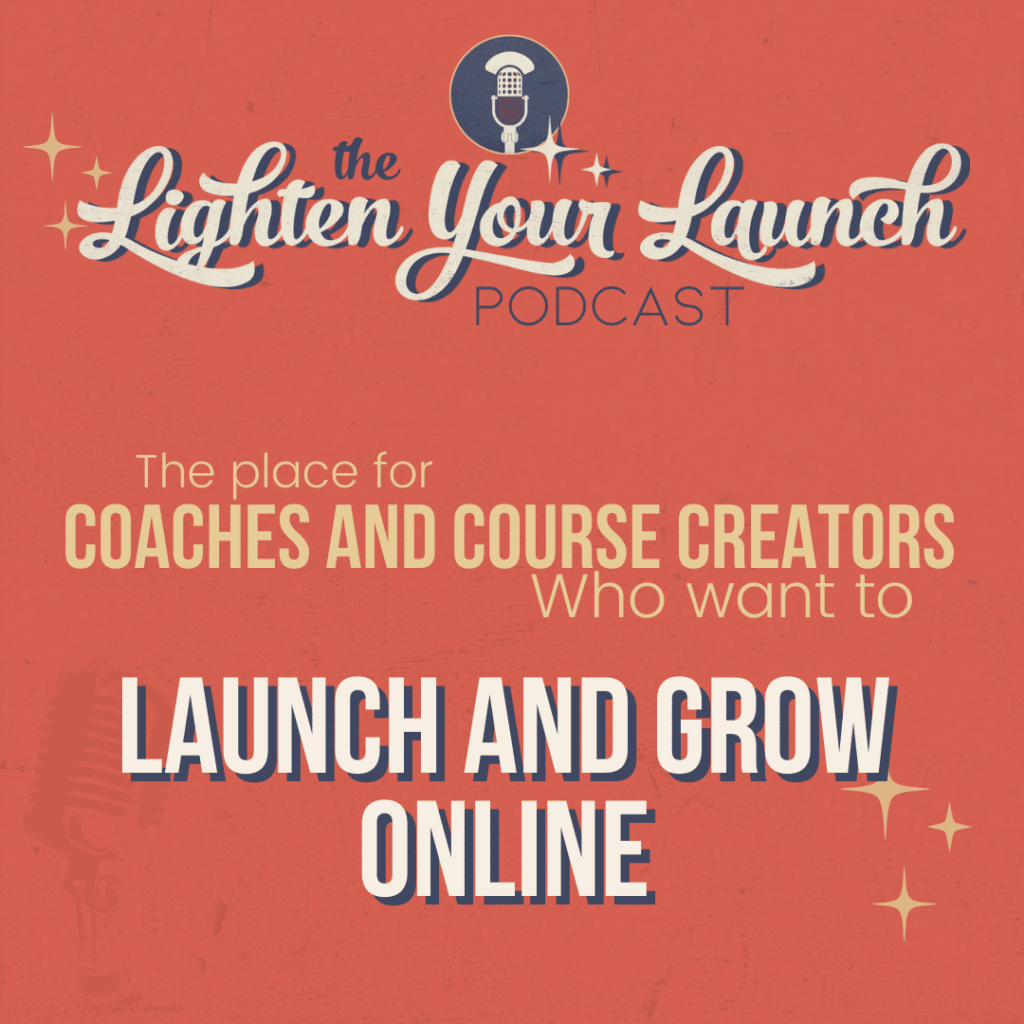
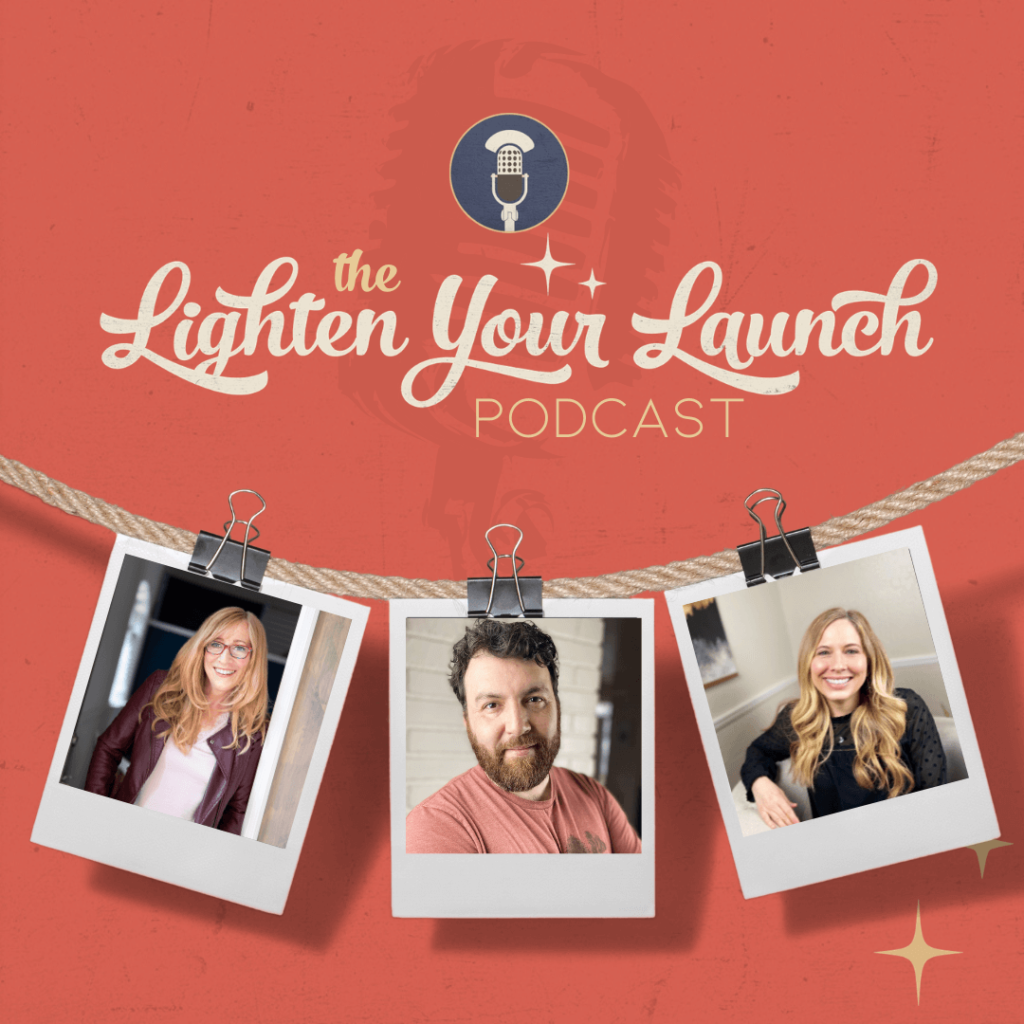


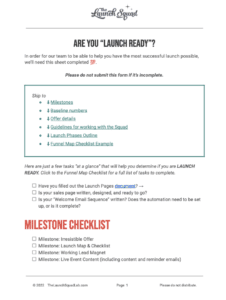
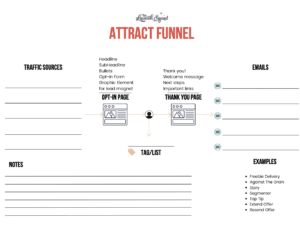
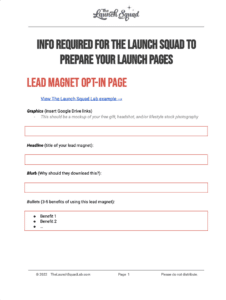
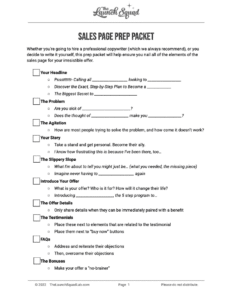
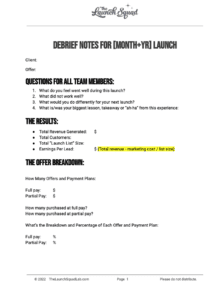
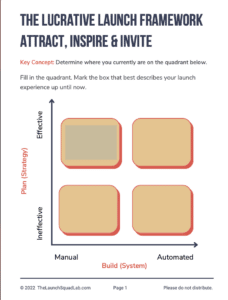
![Marketing Launch Calendar [TEMPLATE]](https://thelaunchsquadlab.com/wp-content/uploads/2023/05/Marketing-Launch-Calendar-TEMPLATE-300x260.png)
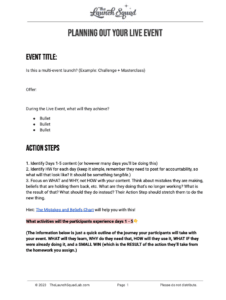
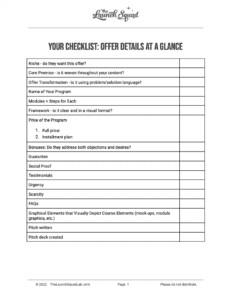
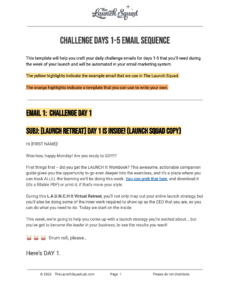
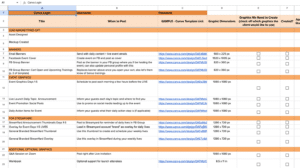
![[Updated] Email Templates for Launch](https://thelaunchsquadlab.com/wp-content/uploads/2023/05/Updated-Email-Templates-for-Launch-223x300.png)
![[REVISED] LS Pitch Script](https://thelaunchsquadlab.com/wp-content/uploads/2023/05/REVISED-LS-Pitch-Script-2023-226x300.png)

